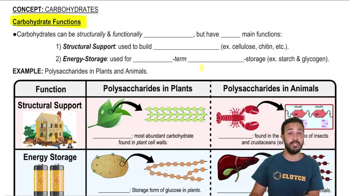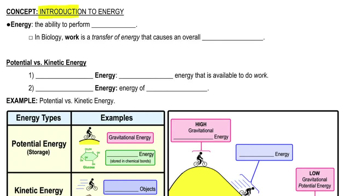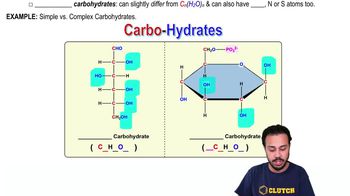Textbook Question
A glucose molecule is to starch as (Explain your answer.)a. a steroid is to a lipid.b. a protein is to an amino acid.c. a nucleic acid is to a polypeptide.d. a nucleotide is to a nucleic acid.
2934
views
 Verified step by step guidance
Verified step by step guidance Verified video answer for a similar problem:
Verified video answer for a similar problem:

